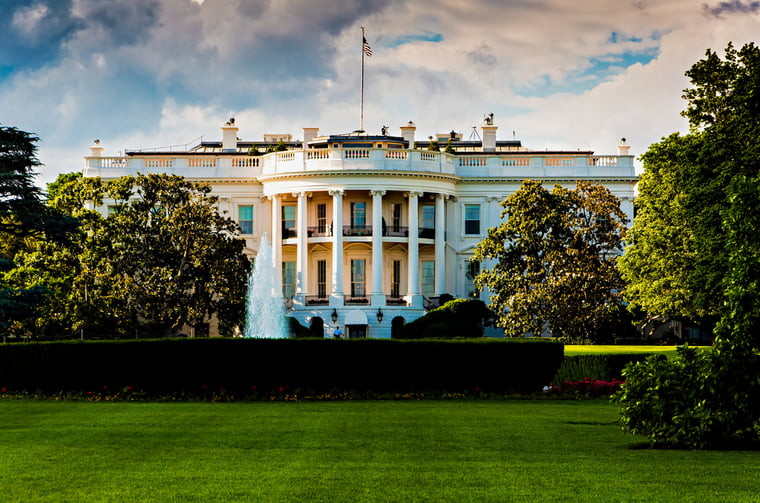The political climate has heated up in our country, and it feels like we’re more divided than ever. Sometimes this divide is so clear that you can practically see the line—though we all see it in different colors. When it comes to talking politics—whether on social media or in person—it can be hard to turn down the dial.
Where do we draw the line when it comes to talking politics at work? When do political discussions go too far? Should employers stop discussions from happening? Should we all just keep our beliefs to ourselves, and is that even possible?
It can be difficult to figure out—especially for small- and medium-sized business owners who have small leadership teams and may not have a robust HR function.
To find answers to these ever-important questions, we turned to an expert in HR and workplace conflicts: George Hlavac, managing partner of Hoffman Hlavac & Easterly.
Hlavac noted in the private sector, free speech rights are essentially non-existent; in government, employees have some rights, but they are limited.
This means that when you’re at work, any conversations outside of work requirements are not protected speech. As an employee, if you get into a political discussion that crosses a line of civil and appropriate discussion, your employer can take action against you for disrupting the workplace. As an employer, you have the right to stop any political talk if you see fit.
But should you?
Can your employees have a political conversation without the debate getting heated? Some can, but it seems increasingly likely that conversations will get out of hand. So does political conversation belong in the workplace? Hlavac said it’s up to the leadership to decide.
Small- and medium-sized business owners should evaluate whether these conversations are happening in place of work. After all, your employees aren’t being paid to have political discussions. If the talk doesn’t interfere with work and isn’t disruptive, there likely is no harm. But more often than not, the potential for discord and disruption is high.
Hlavac explained that the employer shouldn’t tolerate arguments of any kind. In most organizations, this means politics should be off limits.
“Employers should strive for a workplace where everyone is comfortable working in it. You don’t want to be in a confrontational environment because of your beliefs,” Hlavac said.
What about an employer who holds strong political opinions?
“It’s not a good idea for an employer to take positions because they can alienate a good part of the workforce,” Hlavac said. But it’s up to the business owner to decide.
Owners of privately-held businesses have more rights than their employees. Quite simply, if the employees don’t like the culture or direction of the company, they should consider employment elsewhere. That may sound harsh, but there are no laws in place to protect employees from speech that they disagree with.
While a manager harassing someone based on his or her political views may not be illegal, it can be viewed as hostile and should be handled appropriately. A hostile work environment can cause morale problems and lead to turnover.
Of course, a political conversation that crosses the line into protected classifications such as race, religion or gender is illegal. It’s safe to say that being partisan, outspoken and confrontational as an employer is not a wise choice.
Ultimately, employers can decide which guidelines are right for their respective workplaces. If you think your organization can handle healthy, non-disruptive debate, so be it. But you should monitor it to ensure it doesn’t get out of hand.
As for employees, we offer similar advice: If you know you can’t handle political discussion without your emotions stepping in, it’s best to keep those conversations out of the workplace.



